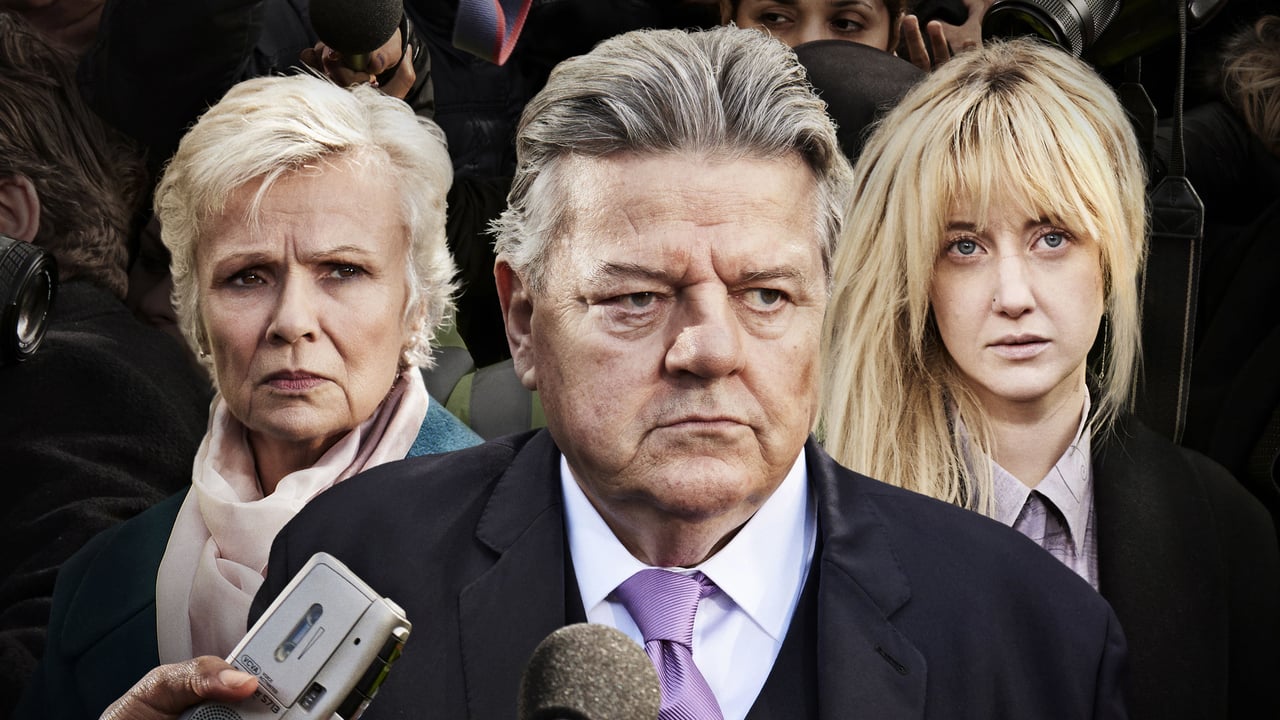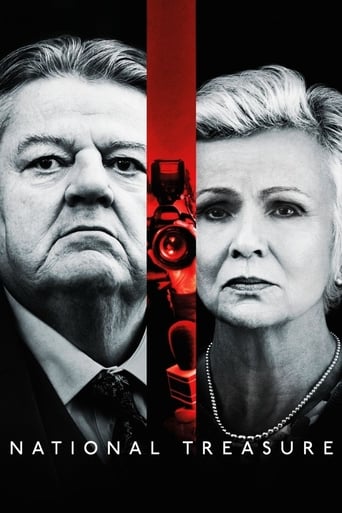

The only redeeming factor about this production is that it was done Before "me too". Otherwise what's the Point of doing a film of a fat guy being accused of rape and leave it open if he was guilty or not, leaning towards him being guilty. If he had been slender and the "anyone for Tennis?"-kind of guy kthat would have been different. But that's not the case here. Here it's the fat slob getting caught. This could have been so much better, especially seen through the "mee too" Campaign which, most admiringly brings up a very important issue but does not fully convey the risks involved. The Three stars is for the redeeming fact that the guy was rich and not only fat and therefore Worth some kind of whooping.
... View MoreThis was a great series. Here is a question: Why didn't Karl come clean in his testimony? It seems like Paul's wife wanted him to testify in way that would confirm the raped woman's version. Did Karl decide that he didn't like her after having spent all those years wishing she could be his?
... View MoreI loved Julie Walter's performance in this movie...the best thing about the movie. You can see her struggling with herself to not only understand her husband's character but her own. She is forced to examine her life and relationships with family and friends. 4 Episodes. Well worth the time to watch.
... View MoreNewspaper reviewers have predictably commented on the parallels between Jack Thorne's drama and the so-called "Operation Yewtree," in which major celebrities - the "national treasures" suggested by the title - were found to be serial abusers, or used their fame to exploit the vulnerable. The two central performances of Robbie Coltrane as Paul Finchley and Julie Walters as his wife have also received due recognition.Yet Marc Munden's drama contains so many other brilliant aspects, that don't necessarily focus on the more salacious material but try to explore how and why Fınchley should behave as he did. What we understand from the celebrity and his wife is how narcissistic they are; despite their frequent protestations of love for one another, as well as for their daughter Dee (Andrea Riseborough), they are pathologically incapable of listening. Riseborough's characterization is profound; she does not speak much, but she has a way of looking at the ground, almost as if she cannot face the ordeal of communication, especially with her parents. There is one sequence in particular involving Marie and Dee that sums up the emotional disconnect between them; taking place in a bedroom during Dee's birthday party, Marie emphasizes quite vehemently that she wants her daughter to get better, without understanding in the least how she and her husband are the root cause of Dee's problems.Munden's production is distinguished by memorable cinematography from Ole Bratt Birkeland. Birkeland is fond of long tracking shots, with the camera moving down lengthy corridors to discover the characters. As viewers, we feel we are eavesdropping on their private secrets - just like Peter and Marie, as they seek to find out what's "wrong" with Dee. Birkeland also uses lighting to reinforce the theme: during the birthday party Peter gives one of his windy speeches. As he does so, the camera tracks slowly to the left, revealing candles at the front of the frame, and after a few seconds settles on Dee, looking once again at the ground in embarrassment, her face obscured by yet more candled. Material things seem to matter more to Finchley - they can be easily controlled, and do not require him to empathize. The fact that Dee appears at the end of the shot emphasizes her insignificance.Much of the action unfolds in a dream-like world of psychedelic greens, reds, and blues, drawing attention once more to the fantasy-world that Peter and Marie inhabit. Alternatively several sequences take place in darkened rooms, illumined by miserable spotlights; the perfect ambiance for anyone to behave inappropriately without fear of discovery.Despite its pertinent subject-matter, NATIONAL TREASURE is not really about the abusive celebrity, but looks instead at the destructive ways in which parents - especially those who profess a blameless way of life - destroy their siblings, as well as others, through neglect, or by assuming that people will behave in certain preordained ways. The action unfolds slowly in a series of lengthy exchanges punctuated by occasional musical interludes (by Christobal Tapis de Veer, but remains compelling. This is one of the best dramas I have seen on any medium in the entire year.
... View More